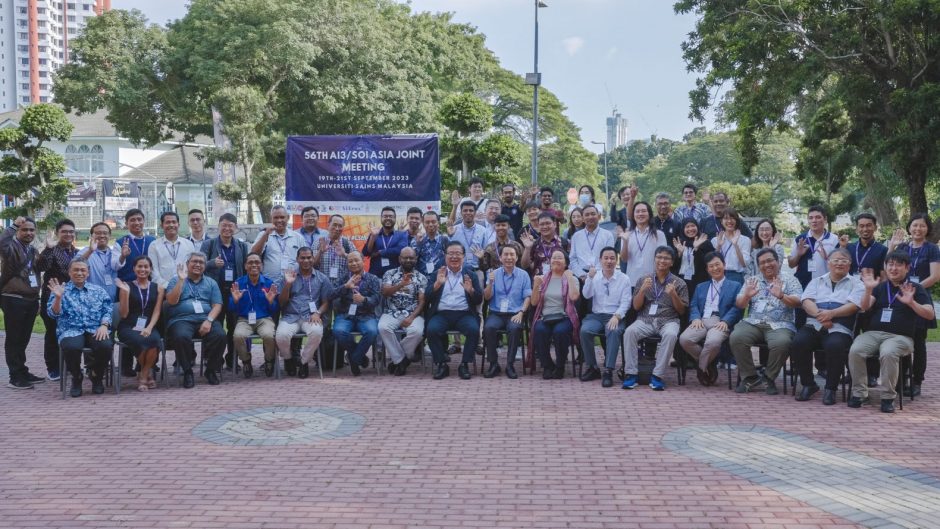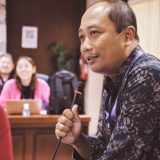On September 19-21, 2023, USM (Universiti Sains Malaysia) hosted the 56th AI3 and SOI Asia Joint Meeting in their campus located in Penang, Malaysia. This was the seventh time that the institution held the meeting.
DAY 1
The first day of the meeting started with research presentations by researchers from Syiah Kuala University (USK, Indonesia) and Tribhuvan University (TU, Nepal). Yogi Setiawan (USK) presented his research on the design of a solar power system for water pump houses. Daniel Rafi and Nada Nabela (USK) shared the highlights of the design of a more energy-efficient IoT device-powered water flow for measuring water consumption. Sushant Chalise (TU) introduced the results of a case study from Nepal that uses hybrid models to estimate the forecasting accuracy of global solar radiation.
In a second block of research presentations, Community-based research (CBR) intern teams presented their work progress on IoT-based technology in different fields. Yu Chenning (USM), Shaquille Na (USK) and Muhammad Arsyada (UB) investigate the potential of IoT-based technology for collecting data on public transportation. The team formed by Muhammad Al-Assad (USK), Zhehui (USM), Made Harilegawa (UB), and William Adam (UNHAS) explores artificial IoT to classify and predict quality in smart agriculture. Tareq Ali (USM) closed the session with this proposal of a novel model for DDoS attack detection.
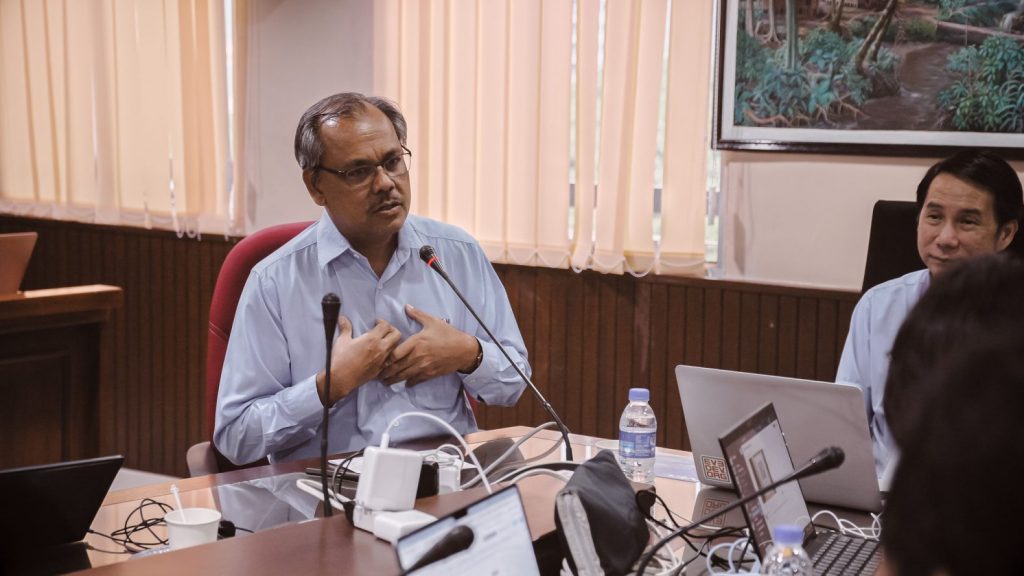
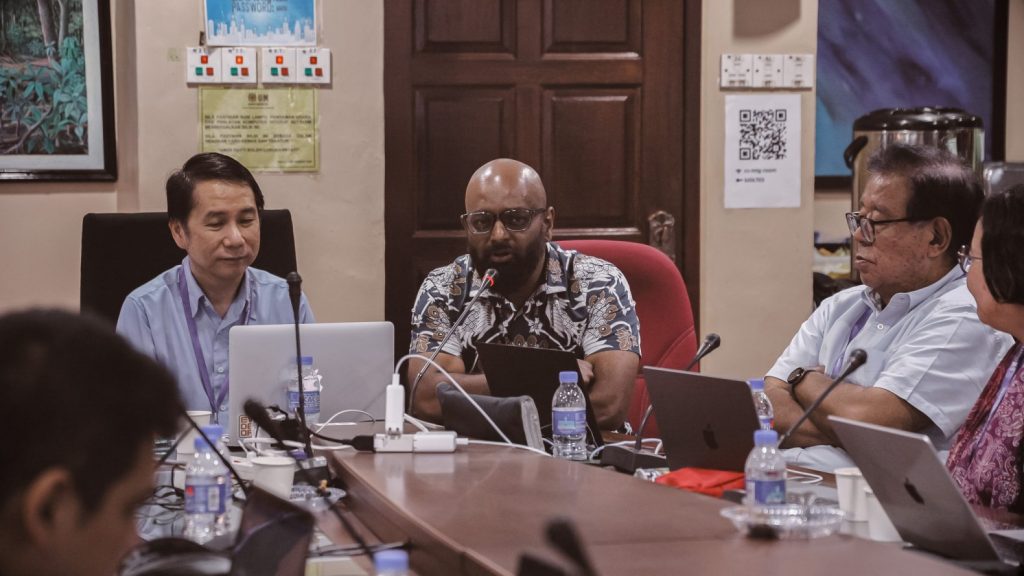
In the opening remarks, Prof. Dato Dr. Bahari Belaton, Dean of the School of Computer Science, welcomed all participants and did a retrospective of the relationship of USM with SOI Asia & AI3 community. Selvakumar Manickam (director of the National Advanced IPv6 Centre, Malaysia) shared his appreciation and delivered his wishes for more collaboration in the next decade. Prof. Jun Murai thanked the organization team in USM and recalled the long history of active involvement and contributions to this community. Murai closed the opening session emphasizing his wishes for this community to keep supporting university and research in Asia-Pacific.
The following session opened the stage for guest speakers Gary Leong (Vitrox) and Liang Zheng Gooi (White Room). Murai also made additional considerations on the latest activities of ARENA-PAC in Indonesia and Singapore.
In the afternoon, the highlight was the updates of SARENA-PAC delivered by Keio, DOST-ASTI and USM and the discussion regarding latency.
After the end of all sessions, all participants attended a welcome dinner kindly sponsored by USM. It was also time to celebrate Prof Wan Tat Chee’s long-year contribution and hard work to support this community since early times prior to his retirement.
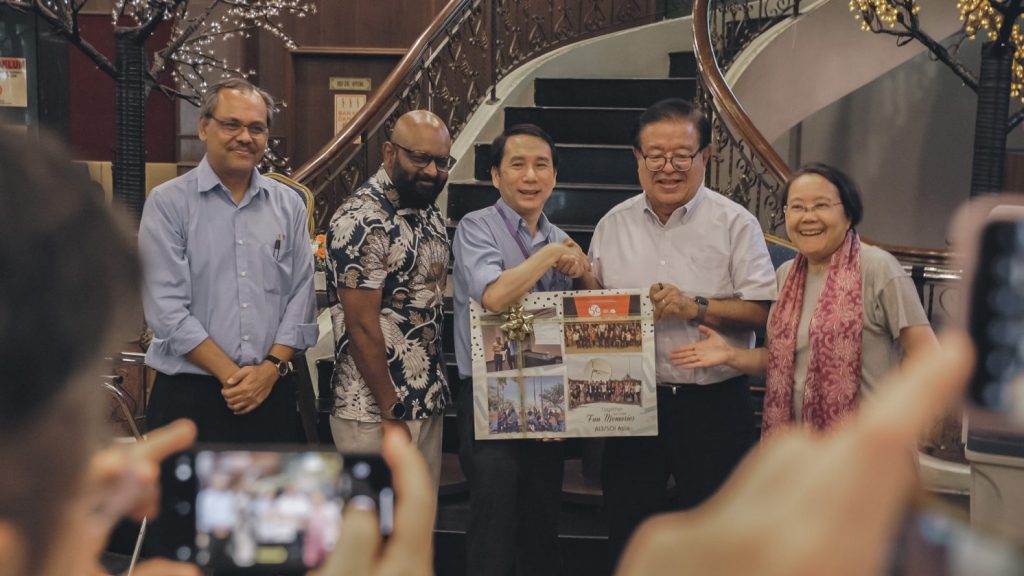
DAY 2
The second day of meetings was focused on project updates. ARENA-PAC opened discussions on cloud services provided by the network, particularly those that would benefit CBR activities and students in partner universities. Prof. Keiko Okawa, director of SOI Asia, expressed her wish to have all partners, including potential future ones such as Bhutan, able to access ARENA-PAC. AI3 director Achmad Husni Thamrin closed the session by discussing the AI3 overlay network over ARENA-PAC, called SARENA-PAC.
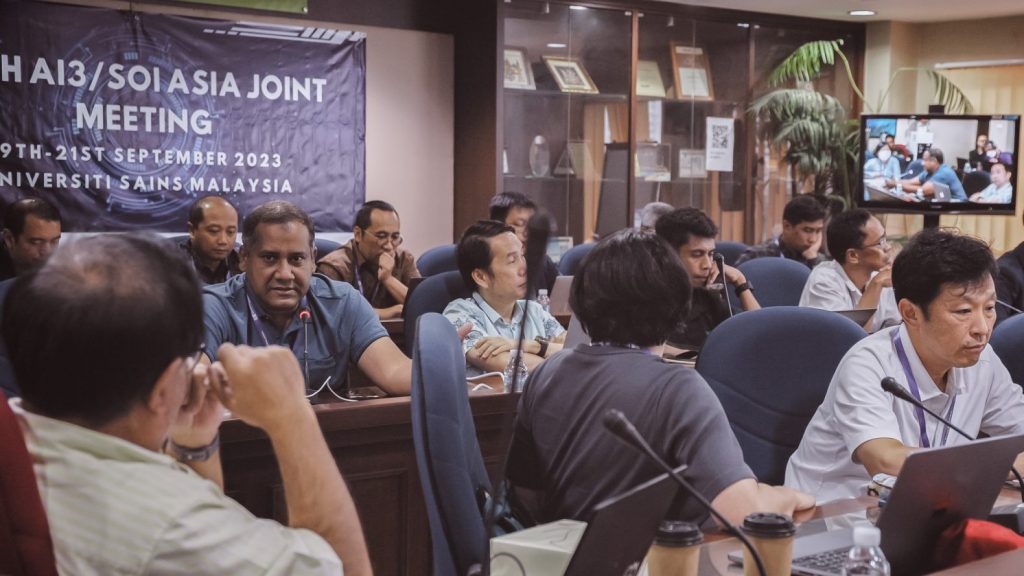
Discussion on CBRs focused on organizational aspects, introducing the CBR scheme for new participants and the CBR administrative process. The proposed cycle aims to optimize operations, monitoring and evaluation. Participants also suggested the expansion of research fields to infra-structure and data governance and more options for internships in Japan.
The Asia Pacific Engineering (APIE) Program shared updates on the latest activities, such as the APIE Camp held at the Institut Teknologi Bandung (ITB), Indonesia, and internship programs. Noriatsu Kudo, lead of APIE, presented plans for an advanced camp in Keio, the upcoming camp hosted by USM, the upcoming batch schedule, and a new course on Internet governance. The updates were followed by discussions on the integration with the university curriculum and learning progress tracking/monitoring.
The Evidence-based Approach (EBA) project leads Kei Uehara and Eliko Akashi introduced the latest information about EBA activities, including upcoming activities such as the fieldwork on cultural heritage preservation in Hokkaido, designed in collaboration with the Keio Museum Commons (KeMCo) and EBA faculty meeting in Keio, both in Japan. During the discussion part, USM expressed their will to host a fieldwork program in the strait of Malaka in 2024. Other participants raised accreditation as an essential topic to be discussed further.
The session on the micro-accreditation platform Inxignia discussed different approaches in each partner institution. Andrey Ferriyan and Rika Ikeda, leads of Inxignia, also called for collaboration and got hands raised by several institutions, including UB, UNSRAT, ITB and USK.
This time, SOI Asia opened a session on Open Science and culture presentation. Goki Miyakita (KeMCo) introduced this new research category in this community. This collaboration with UNESCO also opened a call for collaboration. Keiko added that this field can be of significant contribution and has a high potential for cooperation with EBA.
DAY 3
On the last day of this joint meeting, core members summarized discussion topics from the past two days and defined candidates for upcoming meetings in 2024.
After the discussions, Achmad Basuki (UB), known as Abazh, was awarded the Dr. Suguru Yamaguchi Memorial Award for his extensive contribution to this community. Basuki is an associate professor at the Faculty of Computer Science, Universitas Brawijaya, where he currently serves as the Head of the Department of Informatics Engineering. He is also the secretary general of the Indonesia Research and Education Network (IDREN), where he has been actively coordinating the development of research and education institutions in Indonesia.
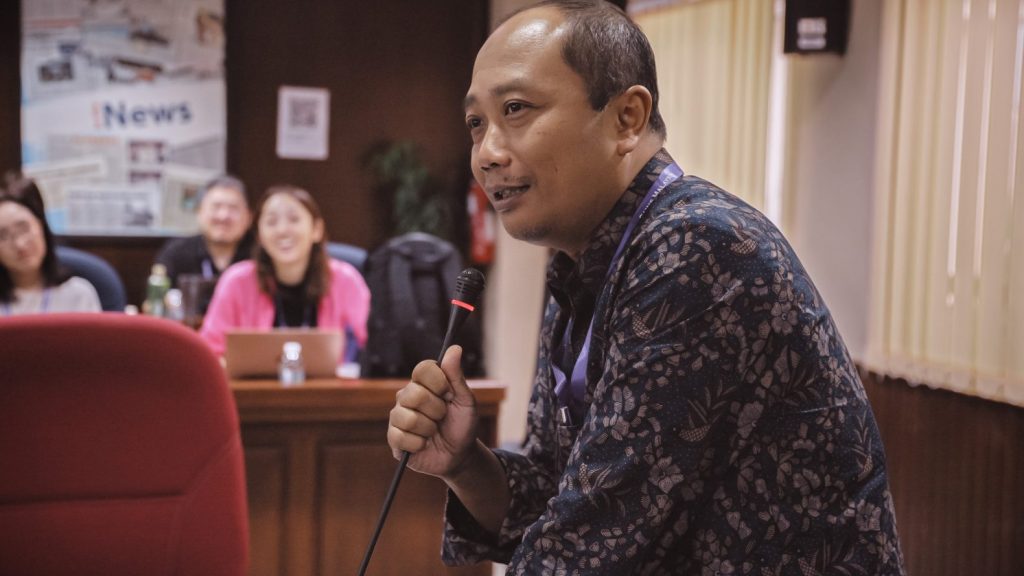
Abazh has extensive experience operating and managing enterprise networks, such as campus networks and research and education networks, for over 15 years, especially during his 2006 – 2012 master’s and doctoral studies at Keio Shonan-Fujisawa Campus, Keio University. His research interests span Software Defined Networking, IoT in rural/challenged networks, Internet Architecture, and IP multicast.
Dr. Suguru Yamaguchi Memorial Award was created in 2017 to commend talented researchers, developers, and operators for the next generations of the AI3/SOI Asia Projects. He founded AI3 in 1996, enabling academic collaboration among research and education communities in 13 Asia-Pacific economies, resulting in a vast contribution to the development of the Internet in the region. He was also firmly committed to cybersecurity and a marathon lover. In April 2014, Yamaguchi was diagnosed with Multiple System Atrophy (MSA) and passed away in 2016, leaving an immeasurable legacy for the next generation.

